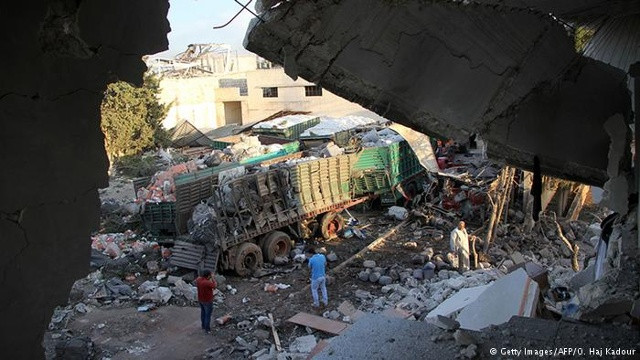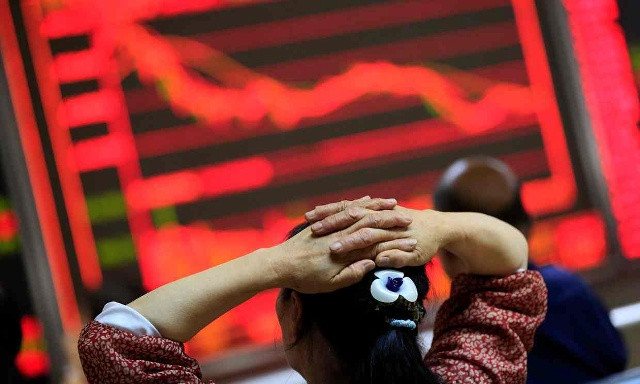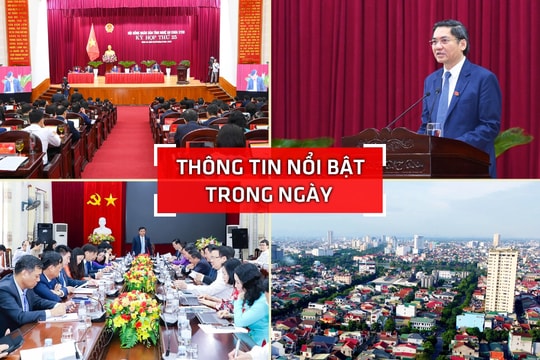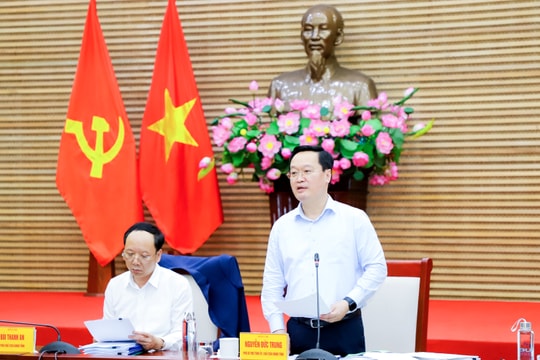The World and the Dark Clouds
(Baonghean) - Another week has passed with not so optimistic signals on the political arena and the future picture of the global economy. And to dispel the dark clouds covering the global "super agency" or the development prospects of countries is not simple, not something that can be rushed in a day or two...
United Nations powerless?
The recent bombing of an aid convoy in Syria has cast a pall of pessimism over the past few years, leading many to believe that all the political wrangling and negotiations have been for naught. At the same time, there is a growing doubt as to whether the United Nations still has an effective strategy to help the unfortunate people in the war-torn lands of this planet.
 |
| The bombing of an aid convoy in Syria has raised questions about the role of the United Nations. Photo: AFP. |
Even in an article in DW, author Ines Pohl asserted that the United Nations is now powerless, its structures are outdated, inactive and do not know how to save the Syrian people.
Looking back at the creation of this body in 1945, the world was very different from today. The consequences of World War II were still evident, and global political bodies were created to avoid a repeat of that tragic event. The five permanent members of the Security Council were given decision-making powers to prevent any superpower from becoming too powerful. Today's major economic powers like Brazil and India had little say on any issue. Even post-war Germany did not join the UN until 1973.
Meanwhile, the central structure of this “super-agency” is almost the same. Russia, China or the United States still have the right to veto any resolution they do not like. Of course, this also affects the selection process for the position of Secretary-General, preventing candidates from having a clear and strong vision for leadership, and ultimately choosing someone who is willing to take a neutral path, to be moderate and avoid taking a position on difficult issues.
In a world where terrorism is on the rise and states and political structures are disintegrating, the United Nations should be more important than ever. Yet it has often failed to show the courage or the strength to reinvent itself and face these challenges.
Partly because the victorious powers of World War II refuse to admit that they alone cannot resolve conflicts such as the one in Syria, they must relinquish some of their power to make the UN General Assembly truly a powerful tool for promoting greater understanding between nations.
As US-Russia relations grow frostier, any broad reform of the United Nations is unlikely to be on the agenda. Ironically, this is happening under a US President like Barack Obama, who has long recognized that the prevailing ideological struggles cannot be put to rest without accepting a new world order.
Amidst this deadlock, Germany has announced its candidacy for a non-permanent seat on the Security Council for a two-year term from 2019. Whether the leading European country can be of any help remains a question for the future to answer, but there is hope, as Berlin has more or less proven itself to be a good mediator between opposing sides, such as in the Ukraine crisis.
And yet, it is argued that it is better for politicians to yell at each other than for them to refuse dialogue and resort to “talking” by force.
Global Economy: Gloomy Outlook
Many people will remember the Wall Street crash eight years ago, followed by a severe global economic crisis. Trillions of dollars in lost output, millions of jobs lost, and thousands of promises to turn things around from politicians and policymakers - from Barack Obama and Gordon Brown to David Cameron and Christine Lagarde.
Yet, nearly a decade on, little has changed. In the US, the UK and other developed countries, policymakers are talking about sluggish, “bland” economic growth. In the developing world, the situation is even more dire!
This is also the information given by the world's two leading economic research organizations, the Organization for Economic Cooperation and Development (OECD) and the United Nations Conference on Trade and Development (UNCTAD), in the middle of last week.
 |
| The economic outlook for the coming period is not very bright in both developed and developing countries. Photo: EPA. |
According to the Guardian, both reports are cloudy and lack the light of hope. UNCTAD even warned that the world is on the brink of “entering the third phase of financial crisis”.
Today, much of the low-interest loans from the US Federal Reserve, the Bank of England and the European Central Bank are being funneled by financial speculators into lucrative markets in South Africa, Brazil, India, etc.
An estimated $7 trillion was pumped into emerging markets in the form of bank loans and bonds in just five years after the collapse of Lehman Brothers, the largest bank failure in American history. The massive inflow of capital has left developing countries now awash with massive private debt.
The private, non-financial sector in many parts of the developing world now has debt obligations worth nearly 150% of its income. By contrast, the figure in developing countries is closer to 80%. So, in the context of falling commodity prices, it is not surprising that developing countries are now limping along rather than accelerating.
Not to mention that over the past decades, the share of GDP shared with workers in rich countries has also been falling. These countries have “taken advantage” of social benefits and public services to pay for tax deductions. A similar pattern is happening in poor countries, and the result is that everywhere one sees “huge” debts accompanied by disappointing growth.
In the short term, the big players like the US and Europe will need to do more to stabilize the global economy, through fiscal stimulus and wage increases, even if they face resistance from those who hold the purse strings. In the long term, the flaws in globalization will need to be fixed, to build a more sustainable, inclusive model, based on higher wages, a stronger tax system and a public safety net.
Phu Binh
| RELATED NEWS |
|---|



